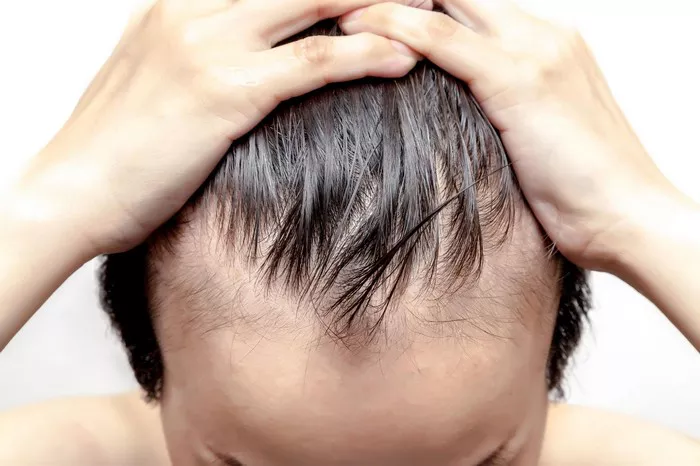Hair loss is a common concern that can affect individuals of various ages. As technology and medical advancements have made hair transplants increasingly popular, the question arises: What is the best age to get a hair transplant? In this detailed guide, we will explore the factors that influence the optimal age for undergoing a hair transplant and provide insights into making informed decisions about this transformative procedure.
Understanding Hair Loss Patterns
Before delving into the ideal age for a hair transplant, it’s essential to understand the patterns of hair loss that individuals may experience.
Genetic Factors
Androgenetic Alopecia (AGA): This hereditary form of hair loss is the most common cause. It often follows a predictable pattern, with gradual thinning and recession of the hairline in men and diffuse thinning in women.
Pattern Baldness: Hair loss patterns vary between men and women, with men typically experiencing a receding hairline and balding at the crown, while women may notice widening parts and overall thinning.
Non-Genetic Causes
Medical Conditions: Certain medical conditions, hormonal imbalances, and lifestyle factors can contribute to hair loss. These may include stress, thyroid disorders, and nutritional deficiencies.
Temporary Hair Loss: Some individuals may experience temporary hair loss due to factors like pregnancy, illness, or specific medications. In such cases, addressing the underlying cause may lead to hair regrowth.
The Best Age for Hair Transplant: Considerations
While there is no one-size-fits-all answer to the best age for a hair transplant, several key considerations can guide individuals in making the right decision.
Stability of Hair Loss
Wait for Stabilization: Hair loss tends to progress with time, especially in cases of genetic baldness. The best age for a hair transplant is often when the pattern has stabilized. This ensures that the transplanted hair will complement the existing hair and provide a natural look.
Assessment by a Professional: Consultation with a qualified hair transplant specialist is crucial to assess the stability of hair loss. They can evaluate your individual case and recommend the most suitable course of action.
Age and Rate of Hair Loss
Younger Individuals: While hair loss can occur at any age, younger individuals may experience more unpredictable patterns. Undergoing a hair transplant too early may lead to the need for additional procedures as hair loss progresses.
Middle to Older Age: Individuals in their late twenties to forties may be more suitable candidates as the pattern of hair loss tends to be more predictable. Waiting until the mid to late twenties allows for a more accurate assessment of the extent and stability of hair loss.
Patient’s Psychological Readiness
Emotional Impact: Hair loss can have a significant emotional impact, affecting self-esteem and confidence. The best age for a hair transplant also considers the patient’s psychological readiness to undergo the procedure and manage expectations.
Realistic Expectations: It’s essential for individuals to have realistic expectations about the results of a hair transplant. A mature mindset and understanding of the process contribute to overall satisfaction with the outcome.
Overall Health and Lifestyle Factors
General Health: The best candidates for a hair transplant are generally in good health. Medical conditions that may interfere with the healing process should be addressed before considering the procedure.
Lifestyle Choices: Factors such as smoking and excessive alcohol consumption can impact the success of a hair transplant. Adopting a healthy lifestyle before the procedure can contribute to better outcomes.
Choosing the Right Time for a Hair Transplant
Late Twenties to Forties
Stable Patterns: This age range is often considered optimal as the pattern of hair loss is more stable and predictable.
Mature Decision-Making: Individuals in their late twenties to forties are more likely to have a mature mindset, allowing them to make informed decisions about the procedure.
Individualized Assessment
Consultation is Key: The decision to undergo a hair transplant should be based on an individualized assessment conducted during a consultation with a qualified hair transplant specialist.
Personal Factors: Each person’s case is unique, and factors such as genetics, rate of hair loss, and psychological readiness should be considered.
Preventive Measures and Early Intervention
Proactive Approach: In some cases, individuals may choose to undergo a hair transplant at an earlier age to address specific concerns. This proactive approach may involve addressing specific areas of concern rather than waiting for widespread hair loss.
Consultation with a Specialist: Early intervention should be guided by a thorough consultation with a hair transplant specialist who can provide personalized recommendations.
Conclusion
In conclusion, determining the best age for a hair transplant is a nuanced decision that involves a combination of factors, including the stability of hair loss, individualized assessment, and the patient’s psychological readiness. While the late twenties to forties is a common age range for optimal results, there is no one-size-fits-all answer. Consulting with a qualified specialist is crucial for a thorough evaluation and personalized recommendations based on individual needs and circumstances. Ultimately, the best age for a hair transplant is the age at which the individual is both physically and emotionally ready for the procedure, ensuring a positive and satisfying outcome.
How Long Does The Swelling Last After Hair Transplant

